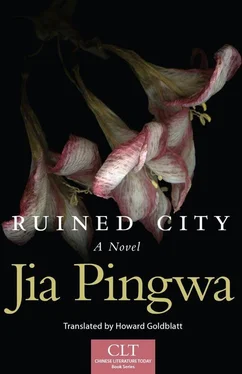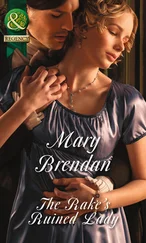“You have a good ear. Have you ever been there?”
“Sure. It’s where you get the finest pork and shredded tofu,” Zhuang replied.
“How wonderful. I told Zhou Min that was exactly what I was going to cook for Zhuang Laoshi, and he laughed at me, saying most people don’t like it.”
“Good for you,” Zhuang said as he eyed Wan’er, who in turn lowered her own eyes. He wondered aloud which grapes were still green at this time of year. So he jumped up to pluck one, but they were out of reach. Wan’er giggled. He asked what she was laughing at.
“People say Zhuang Laoshi prefers sour foods. I didn’t believe that. I thought only pregnant women liked sour things. But you do seem to like them.” Climbing onto a stool, she reached up, but the vine was too high, so she stood on her tiptoes and stretched like a bow, exposing the fair skin of her arm. Her sleeve slipped down, and Zhuang spotted a mole on her arm.
Zhou Min walked out from the kitchen with a plate of food. “What are you doing, feeding Zhuang Laoshi sour grapes?” he said when he saw what she was doing. “He won’t be able to eat after that.” Zhuang smiled and headed off to the toilet.
After washing his hands, he returned to a table laden with three cold dishes and several canned items. Naturally, he took the seat of honor. Xia Jie drank what she’d brought, Meng Yunfang enjoyed his almond drink, and Zhou Min raised his glass of baijiu. “Zhuang Laoshi,” he said, “you are one of Xijing’s most prominent individuals, but more than that, you are the pride of Tongguan. Thanks to you I found work in an editorial office, and I will never forget your kindness. Today I want to say that the way in which I landed the job was not altogether on the up-and-up. A note of introduction with your name on it was what did it. I hope you can forgive me for that. As for the article I wrote, I was still learning then, so don’t laugh at me.”
“What’s done is done,” Zhuang said, “so nothing more need be said. I haven’t read what you wrote. Lots of people write things like that these days. They say they’re promoting me, but they write to promote themselves. Someone once asked me to read a piece he’d written. I recommended that he not publish it, but he did anyway. People write not to write but to publish, so I’ve stopped reading all of it.”
“I never thought Zhuang Laoshi could be so magnanimous,” Zhou Min said. “To you!” He emptied his glass. So did Zhuang Zhidie. “Yunfang, have you really quit drinking?”
“Completely,” Meng replied.
“What for?” Zhuang asked. “We draw our lessons from Buddhism and Taoism only in philosophy and aesthetics. Don’t be like one of those old women who burn incense and kowtow to the gods. Besides, being a monk or a nun is just another occupation.”
“That’s where you’re wrong,” Meng replied. “No outsider can get the true picture. You can never master qigong exercises until you give up alcohol, meat, onions, and garlic. And you’ll be discomfited if you eat them once you get the qi moving.”
“Practice, practice,” Zhuang countered. “Only true masters cultivate spiritualism and alchemy. Disciples and neophytes never move beyond practice.”
Tang Wan’er chuckled, and when they turned to look at her, she gazed at the pear tree outside the window, draped in green leaves, a hole in its bent old trunk. Zhuang was taken by the look on her face. “Was there something you wanted to say?”
“I love listening to all this wise talk.”
“Wise talk?” Meng sputtered. “All we do is argue, and our thoughts get more and more scattered.”
“In my opinion,” said Zhuang, “you always go to extremes. You said you were going to quit drinking, and you did. Well, I don’t have that kind of willpower. Not even a drop? Really? This is genuine Wuliangye we’re drinking.”
“Not even if it’s real Maotai,” Meng replied.
Xia Jie had finished her drink and asked Zhou Min for a refill. “You’re right, Zhidie. He has suffered from extremes all his life. He had gained a bit of fame by the time you came to Xijing, but in the years since, you’ve become a bright light, while he hasn’t changed a bit. Instead of writing, he studies Buddhism and practices qigong all day long. He won’t eat this, says no to that, until all I’ve got in my stomach is water, not a drop of grease.”
“Then Meng Laoshi is missing out on the good life,” Zhou Min said. “Businessmen enjoy good fortune without status. Meng Laoshi enjoys status without good fortune.”
“Well said,” Meng agreed. “Our Zhuang Laoshi has both fortune and status, and when you reach that point, you can have whatever you want.”
With that comment ringing in his ears, Zhuang gazed at the sunlight streaming in through the window onto the food on the table. Dust floated in the sunbeams. He forced a smile. “I may have everything,” he said, “but I seek perfection.”
That surprised Meng Yunfang. “What did you say?”
Zhuang repeated himself: “I said I seek perfection.”
“I can’t figure you out,” Meng said. “Believe me when I say I never thought you could spend so much time in a brewery. And I’ve noticed that your ideas seem to have undergone a change recently.”
“I surprise myself,” Zhuang said. “Am I adapting to society or becoming corrupt?”
“I’m not the one to answer that,” Meng said. “I imagine it’s no different than my infatuation with qigong and my willingness to stop drinking and become a vegetarian. It’s all determined by the natural progression of life. After water is heated, the self-organized phenomenon of perfect symmetry will inevitably occur.” Zhou Min and Tang Wan’er listened without quite understanding what the men were saying, as evidenced by their stiff smiles. “Tsk-tsk,” Xia Jie reacted. “Comrade Meng,” she said, “we’ve been invited to a meal, not an academic conference, so I think we’ve exchanged enough obscure talk.”
“I’ll stop,” Zhuang said with an apologetic wave of his hand. “No more. We’re here to drink.” He picked up his glass and drank.
Only Zhuang and Zhou Min were drinking, which put a damper on the atmosphere. So Zhou Min suggested a few rounds of a finger-guessing game to spice things up. Zhuang begged off, but Zhou Min was relentless. Wan’er was tickled at how the two men refused to give in. “Zhou Min,” she said, “stop treating Zhuang Laoshi as if he were one of your no-account friends. I’ll drink with you, Zhuang Laoshi.” Zhuang jumped to his feet and held out his glass.
“We’ve decided to stay in Xijing now that we’ve met you,” she said. “Please take Zhou Min on as your pupil and teach him how to write.”
“Now that Zhou Min works in an editorial office, I’ll be the one seeking his help.”
“Then here’s to you,” she said as she drained her glass. Her face reddened. Zhuang drained his own glass, and she followed him with another and yet another. When Zhou Min coughed to get her attention, she reached up and tucked some loose strands of hair behind her ear; she was getting more beautiful by the second. Zhuang spiritedly finished off three more glasses, and then, not giving an inch to Wan’er, turned the bottle upside down to show it was empty.
While the others laughed and carried on, Meng Yunfang went back into the kitchen, where he prepared three meat and three vegetarian dishes, then carried out a pan-fried fish with pine nuts, stir-fried pork kidney, frog meat, and a turtle that had been stewing in a clear broth. Xia Jie praised the turtle, claiming that whoever found the pin bone was in for good luck. In the West, she said, pin bones sell for five U.S. dollars as toothpicks. She split open the meat and placed a small portion on each diner’s plate. Tang Wan’er picked at hers with her chopsticks until she found the bone. “Back in Tongguan I ate lots of Yellow River turtles, but they had a muddy taste. Your health is paramount, Zhuang Laoshi, so you can have my portion.” She placed it on his plate before he could say anything.
Читать дальше


![Matthew Vincent - [you] Ruined It for Everyone!](/books/216429/matthew-vincent-you-ruined-it-for-everyone-thumb.webp)









